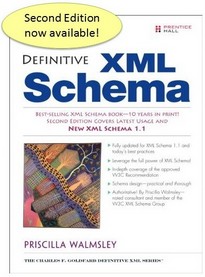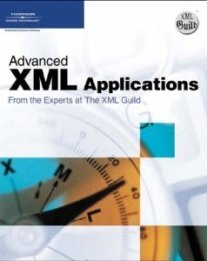gco:UomArea_PropertyType
Complex type information
Namespace: http://www.isotc211.org/2005/gco
Schema document: external/ogc/iso/19139/20070417/gco/basicTypes.xsd
Content
- Choice [0..1]
- gml:UnitDefinitionA gml:UnitDefinition is a general definition of a unit of measure. This generic element is used only for units for which no relationship with other units or units systems is known. The content model of gml:UnitDefinition adds three additional properties to gml:Definition, gml:quantityType, gml:quantityTypeReference and gml:catalogSymbol. The gml:catalogSymbol property optionally gives the short symbol used for this unit. This element is usually used when the relationship of this unit to other units or units systems is unknown.
- gml:BaseUnitA base unit is a unit of measure that cannot be derived by combination of other base units within a particular system of units. For example, in the SI system of units, the base units are metre, kilogram, second, Ampere, Kelvin, mole, and candela, for the physical quantity types length, mass, time interval, electric current, thermodynamic temperature, amount of substance and luminous intensity, respectively. gml:BaseUnit extends generic gml:UnitDefinition with the property gml:unitsSystem, which carries a reference to the units system to which this base unit is asserted to belong.
- gml:DerivedUnitDerived units are defined by combination of other units. Derived units are used for quantities other than those corresponding to the base units, such as hertz (s-1) for frequency, Newton (kg.m/s2) for force. Derived units based directly on base units are usually preferred for quantities other than the fundamental quantities within a system. If a derived unit is not the preferred unit, the gml:ConventionalUnit element should be used instead. The gml:DerivedUnit extends gml:UnitDefinition with the property gml:derivationUnitTerms.
- gml:ConventionalUnitConventional units that are neither base units nor defined by direct combination of base units are used in many application domains. For example electronVolt for energy, feet and nautical miles for length. In most cases there is a known, usually linear, conversion to a preferred unit which is either a base unit or derived by direct combination of base units. The gml:ConventionalUnit extends gml:UnitDefinition with a property that describes a conversion to a preferred unit for this physical quantity. When the conversion is exact, the element gml:conversionToPreferredUnit should be used, or when the conversion is not exact the element gml:roughConversionToPreferredUnit is available. Both of these elements have the same content model. The gml:derivationUnitTerm property defined above is included to allow a user to optionally record how this unit may be derived from other ("more primitive") units.
- gmx:ML_UnitDefinition
from subst. group gml:UnitDefinitionfrom subst. group gml:BaseUnitfrom subst. group gml:DerivedUnitfrom subst. group gml:ConventionalUnit
Attributes
| Name | Occ | Type | Description | Notes |
|---|---|---|---|---|
| xlink:type | [0..1] | xsd:string | Fixed value is "simple". from group xlink:simpleLink | |
| xlink:href | [0..1] | xsd:anyURI | from group xlink:simpleLink | |
| xlink:role | [0..1] | xsd:anyURI | from group xlink:simpleLink | |
| xlink:arcrole | [0..1] | xsd:anyURI | from group xlink:simpleLink | |
| xlink:title | [0..1] | xsd:string | from group xlink:simpleLink | |
| xlink:show | [0..1] | Anonymous | The 'show' attribute is used to communicate the desired presentation of the ending resource on traversal from the starting resource; it's value should be treated as follows: new - load ending resource in a new window, frame, pane, or other presentation context replace - load the resource in the same window, frame, pane, or other presentation context embed - load ending resource in place of the presentation of the starting resource other - behavior is unconstrained; examine other markup in the link for hints none - behavior is unconstrained | from group xlink:simpleLink |
| xlink:actuate | [0..1] | Anonymous | The 'actuate' attribute is used to communicate the desired timing of traversal from the starting resource to the ending resource; it's value should be treated as follows: onLoad - traverse to the ending resource immediately on loading the starting resource onRequest - traverse from the starting resource to the ending resource only on a post-loading event triggered for this purpose other - behavior is unconstrained; examine other markup in link for hints none - behavior is unconstrained | from group xlink:simpleLink |
| uuidref | [0..1] | xsd:string | from group gco:ObjectReference | |
| gco:nilReason | [0..1] | gml:NilReasonType |



